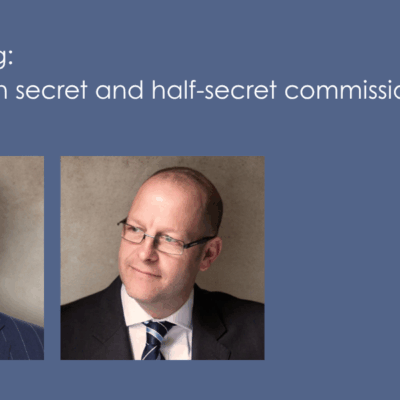
Stephen Woodward recently contributed the following article to Practical Law’s Legal Update for Private Client Practitioners on the Spring 2024 Budget. Stephen is the author of Clarke’s Offshore Tax Planning 2023 – 24.
Explaining the concept of domicile to clients is a challenge as the concept of domicile is inherently nebulous. A tax planning strategy based on being a non-dom, sometimes through a bizarre collection of facts/assertions such as the location of a family burial plot or which jurisdiction the taxpayer spends their Christmas in, is, whilst enjoyable for advisers, inherently uncertain for both taxpayers and HMRC. The prize of the taxpayer shielding their non-UK income and/or gains from UK tax (aka the remittance basis) produces the perverse incentive for those assets to be kept offshore; away from the clutches of HMRC but also out of reach for spending in the UK by the taxpayer.
It is therefore welcome that the current non-dom remittance regime will end on 5 April 2025 to be replaced by a system based on the far less nebulous concept of UK residence.
In broad summary from 2024/25 for individuals:
- If you have a period of 10 tax years of non-UK residence a new four-year regime will apply. During the first four tax years of UK residence, you will pay no UK tax on your foreign income and gains, and distributions from non-UK trusts will also be free of UK tax.
- Individuals who were UK resident non-doms on the remittance basis but do not qualify for the four-year regime on 6 April 2025 (a great many people) will only be taxable on 50% of their foreign income in 2025/26. After 2025/26 such individuals become taxed on a worldwide basis. There is no such relief for foreign gains in 2025/26, but a possibility to make a rebasing election for personal assets held on 5 April 2019.
- For 2025/26 and 2026/27, if you have claimed the remittance basis there will be a reduced rate of tax on directly held remitted pre-5 April 2025 income and gains of only 12%. Using this Temporary Repatriation Facility in conjunction with investing the net of tax remittance in a UK Family Investment Company (FIC) could be a tax efficient strategy.
Where the future legislation is likely to become complex is in relation to the changes to the Protected Trusts regime introduced on 6 April 2017, which will be abolished on 6 April 2025.
Regarding inheritance tax the biggest news is that excluded property settlements created prior to 6 April 2025 will remain free of inheritance tax; I see the first quarter of 2025 being rather busy setting up such structures. Where the reforms are interesting is in the proposed changes to inheritance tax. With the removal of domicile from the UK tax code from 6 April 2025 an entirely new inheritance tax code based on residence will be needed. It appears that being subject to worldwide taxation for inheritance tax purposes will only occur after 10 years of UK residence, but with a rather long 10-year tail if you then subsequently become non-UK resident. It may still be possible to set up excluded property settlements in the future before the 10-year period of UK residence has expired, but whether such trusts may end up being within the relevant property regime after the settlor has achieved 10 years of UK residence appears at least a possibility.
All the above is only perhaps. None of the draft legislation will be in Finance (No 2) Bill 2024 and there will be a consultation about the fundamental changes to inheritance tax. The Chancellor announced these changes to steal Labour’s thunder on their core election slogan. I cannot advise on who will be in power on 6 April 2025, and I also cannot advise on whether the taxation of wealthy immigrants and their trusts will look anything like the above summary on 6 April 2025.
Disclaimer
This content is provided free of charge for information purposes only. It does not constitute legal advice and should not be relied on as such. No responsibility for the accuracy and/or correctness of the information and commentary set out in the article, or for any consequences of relying on it, is assumed or accepted by any member of Chambers or by Chambers as a whole.




![Delivery matters: Gaster v. HMRC [2025] EWHC 328](https://threestone.law/wp-content/uploads/2024/01/Hallett_Katherine-400x400.jpg)
